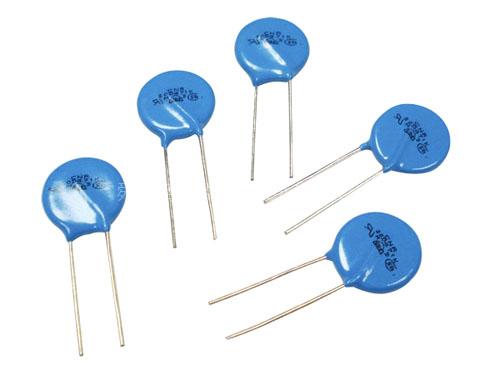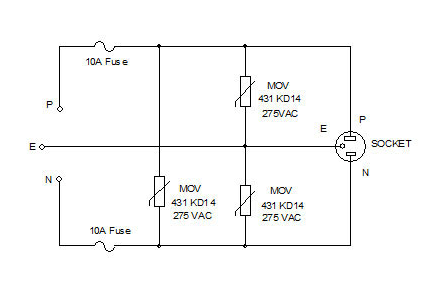Here is a low cost Surge protector circuit for Electric appliances, TV, Computer etc from high voltage spikes that appear in the power lines. Very high voltage spikes and transients develop momentarily in the supply lines when lighting occurs. Such short duration high voltage spikes also super impose on the mains when high current loads are switched on or when power resumes after a power failure due to high magnetic field in the distribution transformer. Even though the spikes are short living, they can cause permanent damage in appliances. This MOV based surge protector circuit can be added in the existing switch board to protect the appliances from high voltage spikes. If heavy transients develop in the mains, the MOV in the circuit short circuit the lines and the fuse will blow out.

Circuit Diagrams
Filed Under: Electronic Projects



Questions related to this article?
👉Ask and discuss on EDAboard.com and Electro-Tech-Online.com forums.
Tell Us What You Think!!
You must be logged in to post a comment.